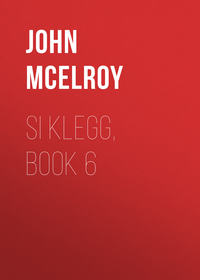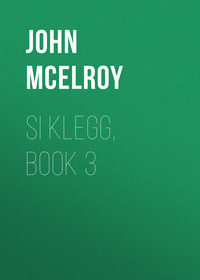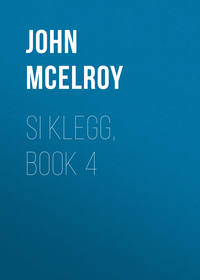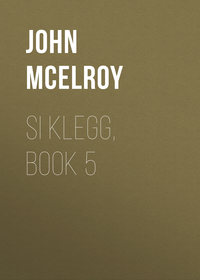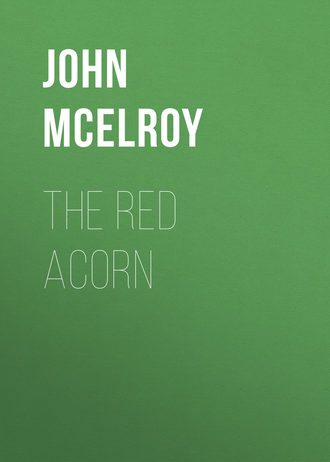 полная версия
полная версияThe Red Acorn
As she stood surveying the exquisite “set” of the garment in such mirrors as she could procure, she said to herself quizzically:
“I feel now that the expedition is going to be a grand success. No woman could fail being a heroine in such an inspiration of dress. There is a moral support and encouragement about a perfectly made garment that is hardly equaled by a clear conscience and righteousness of motive.”
The next morning she came forth from her room attired for the journey. A jaunty hat and feather sat gracefully above her face, to which excitement had given a striking animation. One trimly-gauntleted hand carried a dainty whip; the other supported the long skirts of her riding habit as she moved through the ward with such a newly-added grace and beauty that the patients, to whom her appearance had become familiar, raised in their beds to follow the lovely spectacle with their eyes, and then turned to each other to comment upon her beauty.
At the door she found an orderly, holding a spirited young mare, handsome enough for a Queen’s palfrey, and richly caparisoned.
She sprang into the saddle and adjusted her seat with the easy grace of an accomplished horsewoman.
A squad of “Convalescents” standing outside, and a group of citizes watched her with an admiration too palpable for her to be unconscious of it.
She smiled pleasantly upon the soldiers, and gave them a farewell bow as she turned the mare’s head away, to which they responded with cheers.
A few hundred yards further, where an angle in the street would take her from their view, she turned around again and waved her handkerchief to them. The boys gave her another ringing cheer, with waving hats and handkerchiefs; her steed broke into a canter and she disappeared from view.
“Where is she going?” asked one of the soldiers.
“I don’t know,” responded another gallantly; “but wherever it is, it will be better than here, just because she’s there.”
The sight of an orderly, coming with the morning mail, ended the discussion by scattering the squad in a hurry.
Rachel cantered on, her spirits rising continually.
It was a bright, crisp morning—a Tennessee Winter morning—when the air is as wine to the blood, and sets every pulse to leaping. Delicate balsamic scents floated down from groves of shapely cedars. Gratefully-astringent odors were wafted from the red oaks, ranked upon the hillsides and still covered with their leaves, now turned bright-brown, making them appear like serried phalanges of giant knights, clad in rusted scale armor. The spicy smell of burning cedar rose on the lazily-curling smoke from a thousand camp-fires. The red-berried holly looked as fresh and bright as rose-bushes in June, and the magnolias still wore their liveries of Spring. The sun shone down with a tender fervor, as if wooing the sleeping buds and flowers to wake from a slumber of which he had grown weary, and start with him again through primrose paths on the pilgrimage of blossoming and fruitage.
Rachel’s nostrils expanded, and she drank deeply of the exhilarating draughts of mountain air, with its delicious woodsy fragrance. Her steed did the same, and the hearts of both swelled with the inspiration.
Away she sped over the firm, smooth Murfreesboro Pike, winding around hillsides and through valleys filled with infantry, cavalry and artillery, through interminable masses of wagons, hers of braying mules, and crowds of unarmed soldiers trudging back to Nashville, on leave of absence, to spend the day seeing the sights of the historic Tennessee capital. In the camps the soldiers were busy with evergreen and bunting, and the contents of boxes received from the North, preparing for the celebration of Christmas in something like the manner of the old days of home and peace.
Like the sweet perfume of rose-attar from a bundle of letters unwittingly stirred in a drawer, rose the fragrant memory of the last of those Christmases in Sardis before the war, when winged on he scent of evergreens, and the merry laughter of the church decorators, came to her the knowledge that she had found a lodgment in the heart of Harry Glen.
Was memory juggling with her senses, or was that really his voice she heard in command, in a field to her left? She turned a swift, startled look in that direction, and saw a Sergeant marching a large squad at quick time to join a heavy “detail.” His back was toward her, but his figure and bodily carriage were certainly those of Harry Glen. But before she could make certain the squad was merged with the “detail,” to the obliteration of all individuality, and the whole mass disappeared around the hill.
She rode on to the top of the rim of hills which encircle that most picturesque of Southern cities, and stopped for a moment for a farewell to the stronghold of her friends, whose friendly cover she was abandoning to venture, weak and weaponless, into the camp of her enemies.
Above her the great black guns of a heavy fort pointed their sinister muzzles down the Murfreesboro road, with fearful suggestiveness of the dangers to be encountered there.
She remembered Lot’s wife, but could not resist the temptation to take a one backward look. She saw as grand a landscape picture as the world affords.
Serenely throned upon the hill that dominated the whole of the lovely valley of the Cumberland, stood the beautiful Capitol of Tennessee.
Ionic porticos and graceful Corinthian columns of dazzling white limestone rose hundreds of feet above the fountains and magnolia-shaded terraces that crowned the hill—still more hundreds of feet above the densely packed roofs and spires of the city crowded upon the hill’s rocky sides. It was like some fine and pure old Greek temple, standing on a romantic headland, far above the murk and toil of sordid striving. But over the symmetrical pile floated a banner that meant to the world all that was signified even by the banners which Greece folded and laid away in eternal rest thousands of years ago.
At the foot of the hill the Cumberland, clear as when it descended from its mountains five hundred miles away, flowed between its high, straight walls of limestone, spanned by cobweb-like bridges, and bore on its untroubled breast a great fleet of high-chimneyed, white-sided transports, and black, sullen gunboats. Miles away to her left she saw the trains rushing into Nashville, unrolling as they came along black and white ribbons against the sky.
“They’re coming from the North,” she said, with an involuntary sigh; “they’re coming from home.”
She touched her mare’s flank with the whip and sped on.
She soon reached the outer line of guards, by whom she was halted, with a demand for her pass.
She produced the one furnished her, which was signed by Gen. Rosencrans. While the Sergeant was inspecting it it occured to her that now was the time to begin the role of a young woman with rebellious proclivities.
“Is this the last guard-line I will have to pass?” she asked.
“Yes’m,” answered the Sergeant.
“You’re quite sure?”
“Yes’m.”
“Then I won’t have any further use for this—thing?” indicating the pass, which she received back with fine loathing, as if it were something infectious.
“No’m.”
“Quite sure?”
“Yes’m, quite sure.”
She rode over to the fire around which part of the guard were sitting, held the pass over it by the extremest tips of her dainty thumb and forefinger, and then dropped it upon the coals, as if it were a rag from a small-pox hospital. Glancing at her finger-tips an instant, as if they had been permanently contaminated by the scrawl of the Yankee General, she touched her nag, and was off like an arrow without so much as good day to the guards.
“She-cesh—clean to her blessed little toe-nails,” said the Sergeant, gazing after her meditatively, as he fished around in his pouch for a handful of Kinnikinnick, to replenish his pipe, “and she’s purtier’n a picture, too.”
“Them’s the kind that’s always the wust Rebels,” said the oracle of the squad, from his seat by the fire. “I’ll bet she’s just loaded down with information or ouinine. Mebbe both.”
She was now fairly in the enemy’s country, and her heart beat faster in momentary expectation of encountering some form of the perils abounding there. But she became calm, almost joyous, as she passed through mile after mile of tranquil landscape. The war might as well have been on the other side of the Atlantic for any hint she now saw of it in the peaceful, sun-lit fields and woods, and streams of crystal spring-water. She saw women busily engaged in their morning work about all the cabins and houses. With bare and sinewy arms they beat up and down in tiresomely monotonous stroke the long-handled dashers of cedar churns standing in the wide, open “entries” of the “double-houses;” they arrayed their well-scalded milk crocks and jars where the sun’s rays would still further sweeten them; they plied swift shuttles in the weaving sheds; they toiled over great, hemispherical kettles of dye-stuffs or soap, swinging from poles over open fires in the yard; they spread out long webs of jeans and linen on the grass to dry or bleach, and all the while they sang—sang the measured rhythm of familiar hymns in the high soprano of white women—sang wild, plaintive lyrics in the liquid contralto of negresses. Men were repairing fences, and doing other Winter work in the fields, and from the woods came the ringing staccato of choppers. She met on the road leisurely-traveling negro women, who louted low to her, and then as she passed, turn to gaze after her with feminine analysis and admiration for every detail of her attire. Then came “Uncle Tom” looking men, driving wagons loaded with newly-riven rails, breathing the virile pungency of freshly-cut oak. Occasionally an old white man or woman rode by, greeting her with a courteous “Howdy?”
The serenity everywhere intoxicated her with a half-belief that the terrible Rebel army at Murfreesboro was only a nightmare of fear-oppressed brains, and in her relief she was ready to burst out in echo of a triumphant hymn ringing from a weaving-shed at her right.
Her impulse was checked by seeing approach a figure harshly dissonant to Arcadian surroundings.
It was a young man riding a powerful roan horse at an easy gallop, and carrying in his hand, ready for instant use, a 16-shooting Henry rifle. He was evidently a scout, but, as was usual with that class, his uniform was so equally made up of blue and gray that it was impossible to tell to which side he belonged. He reined up as he saw Rachel, and looked at her for a moment in a way that chilled her. They were now on a lonely bit of road, out of sight and hearing of any person or house. All a woman’s fears rose up in her heart, but she shut her lips firmly, and rode directly toward the scout. Another thought seemed to enter his mind, he touched his horse up with his heel, and rode by her, saying courteously:
“Good morning, Miss,” but eyeing her intently as they passed. She returned the salutation with a firm voice, and rode onward, but at a little distance could not resist the temptation to turn and look backward. To her horror the scout had stopped, half-turned his horse, and was watching her as if debating whether or not to come back after her. She yielded to the impulse of fear, struck her mare a stinging blow, and the animal flew away.
Her fright subsided as she heard no hoof-beats following her, and when she raised her eyes, she saw that she was approaching the village of Lavergne, half-way to Murfreesboro, and that a party of Rebel cavalry were moving toward her. She felt less tremor at this first sight of the armed enemy than she had expected, after her panic over the scout, and rode toward the horsemen with perfect outward, and no little inward composure.
The Lieutenant in command raised his hat with the greatest gallantry.
“Good morning, Miss. From the city, I suppose?” he inquired.
“Yes,” she answered in tones as even as if speaking in a parlor; “fortunately, I am at last from the city. I have been trying to get away ever since it seemed hopeless that our people would not redeem it soon.”
The conversation thus opened was carried on by Rachel giving copious and disparaging information concerning the “Yankees,” and the Lieutenant listening in admiration to the musical accents, interrupting but rarely to interject a question or a favorable comment. He was as little critical as ardent young men are apt to be of the statements of captivating young women, and Rachel’s spirits rose as she saw that the worst she had to fear from this enemy was an excess of devotion. The story of her aunt at Murfreesboro received unhesitating acceptance, and nothing but imperative scouting orders prevented his escorting her to the town. He would, however, send a non-commissioned officer with her, who would see that she was not molested by any one. He requested permission to call upon her at her aunt’s, which Rachel was compelled to grant, for lack of any ready excuse for such a contingency. With this, and many smiles and bows, they parted.
All the afternoon she rode through camps of men in gray and butternut, as she had ridden through those of men in blue in the morning. In these, as in the others, she heard gay songs, dance music and laughter, and saw thousands of merry boys rollicking in the sunshine at games of ball and other sports, with the joyous earnestness of a school-house playground. She tried, but in vain, to realize that in a few days these thoughtless youths would be the demons of the battle-field.
Just before dusk she came to the top of a low limestone ridge, and saw, three miles away, the lights of Murfreesboro. At that moment Fortner appeared, jogging leisurely toward her, mounted on a splendid horse.
“O there’s my Cousin Jim!” she exclaimed gleefully, “coming to meet me. Sergeant, I am deeply obliged to you and to your Lieutenant, for your company, and I will try to show my appreciation of it in the future in some way more substantial than words. You need not go any farther with me. I know that you and your horse are very tired. Good by.”
The Sergeant was only too glad of this release, which gave him an opportunity to get back to camp, to enjoy some good cheer that he knew was there, and bidding a hasty good-night, he left at a trot.
Fortner and Rachel rode on slowly up the pike, traversing the ground that was soon to run red with the blood of thousands.
They talked of the fearful probabilities of the next few days, and halted for some minutes on the bridge across Stone River, to study the wonderfully picturesque scene spread out before them. The dusk was just closing down. The scowling darkness seemed to catch around woods and trees and houses, and grow into monsters of vast and somber bulk, swelling and spreading like the “gin” which escaped from the copper can, in the “Arabian Nights,” until they touched each other, coalesced and covered the whole land. Far away, at the edge of the valley, the tops of the hills rose, distinctly lighted by the last rays of the dying day, as if some strip of country resisting to the last the invasion of the dark monsters.
A half-mile in front of the bridge was the town of Murfreesboro. Bright lights streamed from thousands of windows and from bonfires in the streets. Church bells rang out the glad acclaim of Christmas from a score of steeples. The happy voices of childhood singing Christmas carols; the laughter of youths and maidens strolling arm in arm through the streets; the cheery songs of merry-making negroes; silver-throated bands, with throbbing drums and gently-complaining flutes, playing martial airs; long lines of gleaming camp-fires, stretching over the undulating valley and rising hills like necklaces of burning jewels on the breast of night,—this was what held them silent and motionless.
Rachel at last spoke:
“It is like a scene of enchantment. It is more wonderful than anything I ever read of.”
“Yes’m, hit’s mouty strikin’ now, an’ when ye think how hit’ll all be changed in a little while ter more misery then thar is this side o’ hell, hit becomes all the more strikin’. Hit seems ter me somethin’ like what I’ve heered ‘em read ‘bout in the Bible, whar they went on feastin’ an’ singin’, an’ dancin’ an’ frolickin’, an’ the like, an’ at midnight the inimy broke through the walls of ther city, an’ put ‘em all ter the sword, even while they wuz settin’ round thar tables, with ther drinkin’ cups in ther hands.”
“To think what a storm is about to break upon this scene of happiness and mirth-making!” said Rachel, with a shudder.
“Yes, an’ they seem ter want ter do the very things thet’ll show ther contempt o’ righteousness, an’ provoke the wrath o’ the Lord. Thar, where ye see thet house, all lit up from the basement ter the look-out on the ruf, is whar one o’ the most ‘ristocratic families in all Tennessee lives. There datter is bein’ married to-night, an’ Major-Gineral Polk, the biggest gun in all these ‘ere parts, next ter ole Bragg, an’ who is also ‘Piscopalian Bishop o’ Tennessee, does the splicin’. They’ve got ther parlors, whar they’ll dance, carpeted with ‘Merican flags, so thet the young bucks an’ gals kin show ther despisery of the banner thet wuz good enough for ther fathers, by trampin’ over hit all night. But we’ll show hit ter ‘em in a day or two whar they won’t feel like cuttin’ pigeon-wings over hit. Ye jes stand still an’ see the salvation o’ the Lord.”
“I hope we will,” said Rachel, her horror of the storm that was about to break giving away to indignation at the treatment of her country’s flag. “Shan’t we go on? My long ride has made me very tired and very hungry, and I know my horse is the same.”
Shortly after crossing the river they passed a large tent, with a number of others clustered around it. All were festooned with Rebel flags, and brilliantly lighted. A band came up in front of the principal one and played the “Bonnie Blue Flag.”
“Thet’s ole Gineral Bragg’s headquarters,” explained Fortner. “He’s the king bee of all the Rebels in these heah parts, an’ they think he kin ‘bout make the sun stand still ef he wants ter.”
They cantered on into the town, and going more slowly through the great public square and the more crowded streets, came at last to a modest house, standing on a corner, and nearly hidden by vines and shrubbery.
A peculiar knock caused the door to open quickly, and before Rachel was hardly aware of it, she was standing inside a comfortable room, so well lighted that her eyes took some little time to get used to such a change.
When they did so she saw that she was in the presence of a slender, elderly woman, whose face charmed her.
“This is yer Aunt Debby Brill,” said Fortner, dryly, “who ye came so fur ter see, an’ who’s bin ‘spectin’ ye quite anxiously.”
“Ye’re very welcome, my dear,” said Aunt Debby, after a moment’s inspection which seemed to be entirely satisfactory. “Jest lay off yer things thar on the bed, an’ come out ter supper. I know ye’re sharp-set. A ride from Nashville sech a day ez this is mouty good for the appetite, an’ we’ve hed supper waitin’ ye.”
Hastily throwing off her hat and gloves, she sat down with the rest, to a homely but excellent supper, which they all ate in silence. During the meal a muscular, well knit man of thirty entered.
“All clar, outside, Bill?” asked Fortner.
“All clar,” replied the man. “Everybody’s off on a high o’ some kind.”
Bill sat down and ate with the rest, until he satisfied his hunger, and then rising he felt along the hewed logs which formed the walls, until he found a splinter to serve as a tooth-pick. Using this for a minute industriously, he threw it into the fire and asked:
“Well?”
“Well,” answered Fortner. “I reckon hit’s ez sartin ez anything kin well be thet Wheeler’s and Morgan’s cavalry hez been sent off inter Kentucky, and ez thet’s what Ole rosy’s been waitin’ fur, now’s the time fur him ter put in his best licks. Ye’d better start afore midnight fur Nashville. Ye’ll hev this news, an’ alos thet thar’s been no change in the location o’ the Rebels, ‘cept thet Polk’s an’ Kirby Smith’s corps are both heah at Murfreesboro, with a strong brigade at Stewart’s creek, an’ another at Lavergne. Ye’d better fallin with Boscall’s rijiment, which’ll go out ter Lavergne to-night, ter relieve one o’ the rijiments thar. Ye’d better not try to git back heah ag’in tell arter the battle. Good by. God bless ye. Miss, ye’d better git ter bed now, ez soon ez possible, an’ rest yerself fur what’s comin’. We’ll need every mite an’ grain of our strength.”
Chapter XIX. The Battle of Stone River
O, wherefore come ye forth, in triumph from the North, With your hands and your feet, and your raiment all red? And wherefore doth your rout, send forth a joyous shout? And whence be the grapes of the wine-press that ye tread? O, evil was the root, and bitter was the fruit, And crimson was the juice of the vintage that we tred; For we trampled on the throng, of the haughty and the strong, Who sat in the high places and slew the saints of God.* * * * * * * * * * * * * * * They are here—they rush on—we are broken—we are gone—Our left is borne before them like stubble in the blast.O, Lord, put forth thy might!O, Lord, defend the right!Stand back to back, in God’s name! and fight it to the last.—“Battle of Naseby.”The celebration of Christmas in the camps around Nashville was abruptly terminated by the reception of orders to march in the morning, with full haversacks and cartridge-boxes. The next day all the roads leading southward became as rivers flowing armed men. Endless streams of blue, thickly glinted everywhere with bright and ominous steel, wound around the hills, poured over the plains, and spread out into angry lakes wherever a Rebel outpost checked the flow for a few minutes.
Four thousand troopers under the heroic Stanley—the foam-crest on the war-billow—dashed on in advance. Twelve thousand steadily-moving infantry under the luckless McCook, poured down the Franklin turnpike, miles away to the right; twelve thousand more streamed down the Murfreesboro pike on the left, with the banner of the over-weighted Crittenden, while grand old Thomas, he whose trumpets never sounded forth retreat, but always called to victory, moved steadfast as a glacier in the center, with as many more, a sure support and help to those on either hand.
The mighty war-wave rolling up the broad plateau of the Cumberland was fifteen miles wide now. It would be less than a third of that when it gathered itself together for its mortal dash upon the rocks of rebellion at Murfreesboro.
It was Friday morning that the wave began rolling southward. All day Friday, and Saturday, and Sunday, and Monday it rolled steadily onward, sweeping before it the enemy’s pickets and outposts as dry sand by an incoming tide. Monday evening the leading divisions stood upon the ridge where Rachel and Fortner had stood, and looked as they did upon the lights of Murfreesboro, two miles away.
“Two days from to-morrow is New Year’s,” said Kent Edwards. “Dear Festival of Egg-Nogg! how sweet are thy memories. I hope the Tennessee hens are doing their duty this Winter, so that we’ll have no trouble finding eggs when we get into Murfreesboro to-morrow.”
“We are likely to be so busy tendering the compliments of the season to Mr. Bragg,” said Harry, lightly, “that we will probably have but little time to make calls upon the lady-hens who keep open nests.”
“We all may be where we’ll need lots o’ cold water more than anything else,” said Abe grimly.
“Well,” said Kent blithely, “if I’m to be made a sweet little angel I don’t know any day that I would rather have for my promotion to date from. It would have a very proper look to put in the full year here on earth, and start in with the new one in a world of superior attractions.”
“Well, I declare, if here isn’t Dr. Denslow,” said Harry, delightedly, as he recognized a horseman, who rode up to them. “How did you come here? We thought you were permanently stationed at the grand hospital.”
“So I was,” replied the Doctor. “So I was, at least so far as general orders could do it. But I felt that I could not be away from my boys at this supreme moment, an I am here, though the irregular way in which I detached myself from my post may require explanation at a court-martial. Anyhow, it is a grateful relief to be away from the smell of chloride of lime, and get a breath of fresh air that is not mingled with the groans of a ward-full of sick men. It looks,” he continued, with a comprehensive glance at the firmament of Rebel camp-fires that made Murfreesboro seem the center of a ruddy Milky-way, “as if the climax is at last at hand. Bragg, like the worm, will at last turn, and after a year of footraces we’ll have a fight which will settle who is the superfluous cat in this alley. There is certainly one too many.”


